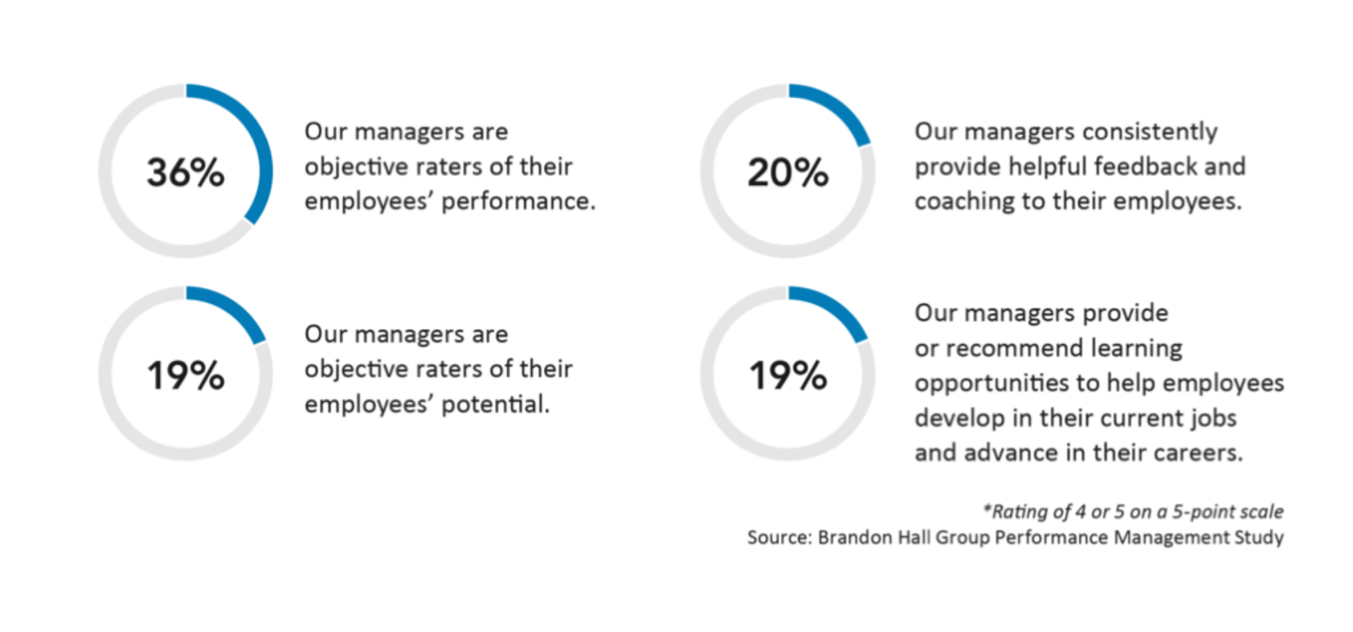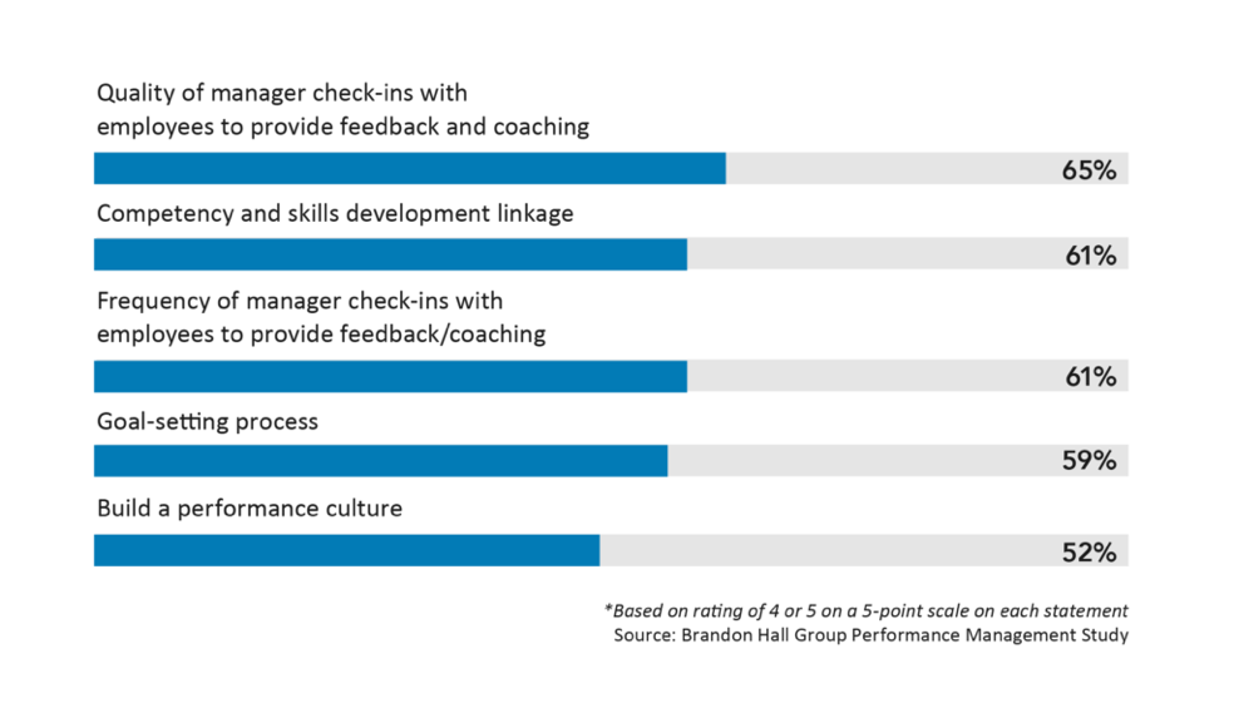
Only 38 percent of organizations pay significant attention to employees’ competency and skill development throughout an annual performance evaluation cycle, according to Brandon Hall Group’s performance-management research. Far more organizations (71 percent) pay heavy attention to employees’ performance on particular initiatives or business goals.
The traditional approach to employee performance evaluations leads to a perception of bias that reduces their value. Almost half of the organizations (47 percent) responding to our research said bias impacts a manager’s evaluation of performance often or always.
Perception of Managers’ Actions in Performance Evaluation

Less than one-third of organizations believe there is a high correlation between the highest-performance evaluation scores and the highest-performing individuals in the organization. There are many reasons for this. The traditional process was designed in a different era when business did not move as fast. Now, an employee’s potential is more important than their past performance.
It is up to organizations to change their performance evaluation process. Performance evaluation can be improved in many ways, according to our research.
Top 5* Performance Management Factors Employers Plan to Address Over The Next Six Months

Through these improved processes—and others based on the needs of individual organizations—managers must obtain a more complete picture of their team members’ performance, value, and potential. That knowledge then must be leveraged to improve talent and learning processes to build a more agile and capable workforce to meet future business needs.
Our POV
Based on our quantitative research, interviews with scores of organizations, and performance management leading practices from Brandon Hall Group’s HCM Excellence Awards program, here are seven questions managers should ask themselves when evaluating and having performance conversations with employees
1. Would I Promote this Individual Right Now if I Could?
Answering this question requires a lot of knowledge about employees—their performance, of course, but also their level of engagement, their future aspirations, their ability to collaborate with teammates, hidden skills and competencies they might have that are not necessarily reflected in their job performance, and their feeling about the organization and its mission, goals, and values. Even if there is not a promotion opportunity available, understanding who on the manager’s team is ready for promotion—and why—is extremely valuable. Some 38 percent of organizations ask this question during the evaluation process, our research shows
2. What Are the Future Opportunities for this Individual?
Once you understand whether someone is ready for promotion, you must understand what opportunities exist for the person. If there are none—or none of interest to the employee—the organization needs to solve this before the person becomes a flight risk. Some 19 percent of organizations ask this question, according to our surveys.
3. What Development Opportunities Can I Offer in the Employee’s Current Role?
Whether the employee is ready for advancement now or needs more development, an individual development plan (IDP) or other type of plan should be created so the employee can continue to build capabilities in their job. If there are no learning opportunities in the current role, that is a problem not just for the employee’s development but for the organization’s ability to develop talent. Some 24 percent of organizations ask this question according to our data.
4. How Important Is this Person to the Team?
This question helps to answer the promotability and opportunities questions and provides perspective on the health and needs of the manager’s team. Every manager should understand the value each team member brings. Some 74 percent of organizations say managers consider this question during the evaluation process, our research shows.
5. Would I Give the Highest Salary Increase to this Individual?
This question is a natural extension of the previous one and makes you really think about the employee’s value from a financial standpoint. The follow-up questions about giving the highest salary increase (or bonus) are why or why not? Some 36 percent of organizations say their managers consider this question, according to our research.
6. How Difficult Is this Employee to Replace?
Considering this question forces you to again think about the employee’s true value, but also about the depth of your talent pipeline. If the person is hard to replace and there is little talent on the bench, that presents issues that need to be addressed. Some 49 percent of organizations ask this question, our research shows.
7. What Is this Person’s Flight Risk?
This is the natural extension of the previous question. If the flight risk is high, the next question is, what do we do about it? Some 21 percent ask this question, according to our research.
All these questions are pertinent in the performance evaluation. In addition, think of insights the organization would have if each manager considered these factors for all employees. If acted upon appropriately, the talent management process would be greatly improved.
Click here for information on Brandon Hall Group’s Professional Certification Program




